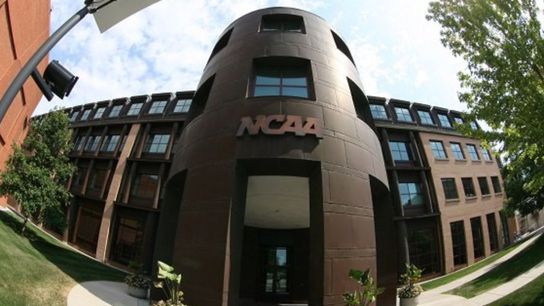As promised last week, an NCAA working group is preparing later today to offer a series of sweeping recommendations that would alter college sports' business model beyond anything resembling the status quo.
The working group has been at work for nearly a year to modernize the college sports business model in the fact of a multi-pronged assault from lawmakers both in Congress and statehouses across the nation. The movement was sparked by California's Fair Pay to Play Act, set to go into effect in 2023, but since has been passed by a Florida law that will go into effect in a little over 14 months.
Given that, the NCAA was boxed into a corner where it had to liberalize its bylaws to allow athletes to market their name, image and likeness while at the same time not undermine its legal argument that college athletes are not employees of the universities they play for.
As reported by ESPN's Dan Murphy, the recommended changes will include:
- Allow student-athletes to make money by modeling apparel as long as that apparel doesn't include school logos or other "school marks."
- Allow athletes to make money from advertisements. Athletes would be allowed to identify themselves as a college athletes in advertisements, but would not be allowed to reference the school they attend or included any school marks in the advertisement.
- Prohibit athletes from marketing products that conflict with NCAA legislation, such as gambling operations or banned substances. Individual schools would also be allowed to prohibit athletes from marketing products that do not line up with the school's values.
- Allow athletes to hire an agent to help procure marketing opportunities, so long as that agent does not seek professional sports opportunities for his or her client during their college career.
- Require athletes to disclose the details of all endorsement contracts to their athletic department. The working group would recommend further discussion about whether a third party should be involved in overseeing these disclosures in a way that prevents endorsement deals from becoming improper recruiting enticements.
A major sticking point moving forward will be that athlete endorsements are compensated at something resembling fair market value, so as to prevent an Alabama commit from receiving seven figures for one autograph signing. On that note, Murphy writes:
For example, the regulators might determine through market research that the fair value of an athlete appearing on a 30-second radio commercial for a local restaurant is somewhere between $5,000 and $10,000. If a restaurant owner instead offers to pay the new star quarterback at his local college $100,000 to appear in a commercial, the regulators will say that the price is clearly overvalued and intended to reward the player's athletic ability and entice future recruits. Athletes will be required to report all endorsement money they earn. A fee that exceeds the fair market value determined by regulators will be flagged as a violation of the new rules.
It bears mentioning and repeating that the above are just recommendations, as the legislation enters a public phase where NCAA membership writ large can weigh in and suggest changes. A formal vote is not expected until January.
At the same time, Florida's law and others like it are already on the books. For an organization committed to competitive equality, one state being legally permitted to offer inducement others can't match is a nightmare scenario, so the NCAA's options are limited and time is ticking.
A formal recommendation is expected any minute now. As always, stay tuned to The Scoop for the latest.
